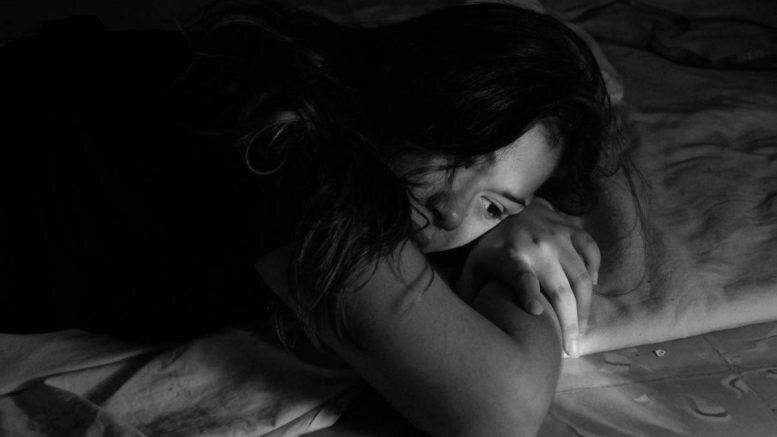This is article one in Norway Today’s two-part series on the current status of negative social control in Norway.
What is social control?
Every culture around the world has (always had) some form of social control. As a concrete term and phenomenon, however, “social control” was first defined by sociologists in the 1800s.
Social control broadly refers to reactions to behavior perceived as deviant, threatening, or undesirable. Social control can be positive – i.e., awards can be given out to promote behavior perceived as good. Or, social control can be negative – i.e., punishments can be imposed upon those engaging in behavior perceived as bad.
Generally, “social control” is how people try to prevent and sanction other people breaking perceived norms.
Preventative and consequential social control
Preventive social control can be carried out on large and small levels.
Take large-scale institutions such as schools. For example, generations of pupils in US schools have faced the US flag, put a hand over their heart, and recited the Pledge of Allegiance to the flag each morning. Here, social control is carried out by encouraging patriotism and discouraging protest.
On a smaller scale, for example, family members can carry out social control. Parents, for example, bring children up in the religion of their choice as a way of encouraging behavior perceived as good and non-deviant.
That’s all preventative, though. How does social control work after the “norms” have been “broken”? Through sanctions.
Sanctions can be formal and informal. Formal sanctions are, for example, fines and jail time – these are most often carried out by governmental authorities. Informal sanctions can include ridicule, isolation, and gossip – and they’re carried out by civilians; think classmates, colleagues, family members, friends… By me, by you.
Deviants and sanctioners
Everyone – to some extent – has both been a “deviant” (a breaker of social norms) and a “sanctioner” (an enforcer of social norms) in their lifetime.
All violent criminals are deviants, but not all deviants are violent criminals. Have you ever run a stop sign? Stayed out too late when you were a teen? Copied a classmate’s homework or test answer? Gone to a protest or spoken out against a political leader? All of those fairly common acts can be considered deviant behavior. While deviant behavior can be extremely harmful, it can also be an agent of positive social for society – in some cases. Women wearing pants in the 19th-century Western world, for example, were considered radical, inappropriate, and – deviant. But as more and more women wore pants over a longer period of time, the fashion choice changed from being perceived as unacceptable to normal.
Likewise – you don’t have to be a judge, police officer, teacher, or any sort of authority figure to be a sanctioner. If you’ve ever sent your kid to a time-out, given someone the cold shoulder because you thought they acted poorly or unfriended a person on Facebook – you’ve likely partaken in some form of social sanctioning. And sanctioning isn’t always bad – if someone in the office keeps spitting in the communal coffee pot, for example, some sort of social sanctioning could very well be suitable.
Where things get complicated…
Social control can be extremely problematic. Why? Well, social control is, in many cases, completely relative and subject to the biased beliefs, personal interests, and whims of the sanctioners.
A few questions can be raised. What is really right or wrong? Who decides what’s right or wrong? What do they base it on? What about when there’s an imbalance of power between sanctioners and deviants?
“No act is inherently deviant in and of itself. Deviance is defined socially and will vary from one group to the other,” French sociologist Emile Durkheim controversially claimed in his The Rules of Sociological Method.
Most individuals and governments strongly disagree with the first sentence of this Durkheim quote – and consider acts like murder and rape inherently and universally deviant. While global and local laws – that is, formal social control – vary, most have the same fundamental criminal acts listed as illegal. The United Nations‘ Universal Declaration of Human Rights is one document that tries to define certain rights (and deviance, if it encroaches on those rights) as inherent and applicable to the entire world.
There’s a lack of universal consensus in the fine details of formal social control, though. For example, factors such as the age of consent, the alcohol drinking age, what constitutes child labor, the prison time required for murder, and so on, differ. Humans worldwide don’t always universally agree on what’s right and wrong.
So, formal social control, regulated by officials and authorities, is somewhat unclearly defined. Informal social control can get even more biased – or it can be downright arbitrary. A few examples. In some cultures, having sex before marriage might be considered unacceptable and might result in parents not allowing their child the freedom of movement. In others, it might be considered normal and not subject to any sort of reaction. Then, in some cultures, members of the LGBTQ community might be celebrated, and in others, subject to torture.
Overall, social control is extremely complex. Its agents vary, its rules vary, its manifestations vary. It can range from less harmful (i.e. giving a kid who graffitied the school wall detention), across more harmful (like bullying someone perceived as different), to downright human rights breaches (such as honor violence).
Negative social control in Norway
So, what does Norway think about social control? Negative social control – that’s the kind that uses punishments, not rewards – is in the focus in the Nordic world.
The Nordic Council defines negative social control as “systematic attempts to enforce norms – including in the family – that restrict individual freedom and rights under the law and the UN Convention on the Rights of the Child.”
In its definition, the Nordic Council puts the focus on children. It eschews the parts of negative social control that might benefit society (i.e. putting your foot down with the coffee-spitting coworker). The Council also doesn’t fully consider formal negative social control – which the Nordic governments drive, with their laws and their enforcement of those laws. Instead, it focuses just on informal social control – the kind circulating among civilians and families – in regards to minors.
Norway’s stance on negative social control – which is on the rise in the country – is that of the Nordic Council’s.
Examples of negative social control (as the Nordic Council defines it) in Norway that worry the government, and society at large, vary. They include depriving young people of their right to work, go to university, have friends, enjoy hobbies, choose a partner, and acknowledge their sexuality.
In such cases, negative social control is often related to pressure exerted by parents or older family members over youth. Reasons behind this negative social control can also vary. Drivers can include religious beliefs, perceiving behavior as shameful, unhealthy relationships, power abuse, socio-economic factors, trauma the controller themselves experienced, perceiving behavior as deviant, feeling the need to uphold traditions, and manipulation. To make matters worse, young people under the pressure of negative social control might not speak up or report their experiences due to fear of their abuser.
In our next article in this series, we explore up-to-date statistics on negative social control in Norway. We also speak to Norwegian authorities on the issue.
Source: #Norway Today / #NorwayTodayNews
Do you have a news tip for Norway Today? We want to hear it. Get in touch at [email protected]






Umm … NO:
“Gone to a protest or spoken out against a political leader? All of those fairly common acts can be considered deviant behavior.”
In a (genuine, anyway) democracy it is a citizen’s *duty* to question and criticize political leaders and governments and their policies if the citizen sees them as being wrong.
(For example, Norway is going along with America’s and Britain’s – NATO’s and the EU’s – confrontational and even (as we just saw in the Black Sea) war-provoking posture, regarding Russia and now China.
And what condition are Norway’s civil defenses in for going along with this risky Russian Roulette? Fallout shelters for everyone? … well stocked with water, food, sanitation bags, diapers …. And are there preparations to see that Norwegian law/justice prevails in the shelters in the case of war … rather than some other law?
No! And that gravely endangers all our children and families, and people should be speaking out to make others aware and active to get the government to spend what is needed for safety instead of only war toys.)
Is there no 1st Amendment Freedom of Speech/Expression in Norway? Is Norway not a democracy?
Is it true that the Norwegian government can put a “politically deviant” citizen in a psychiatric ward, if the citizen becomes (legally but) politically troublesome? (The Soviet KGB’s psychiatric political prisons were heavily populated.)
Alarming article.